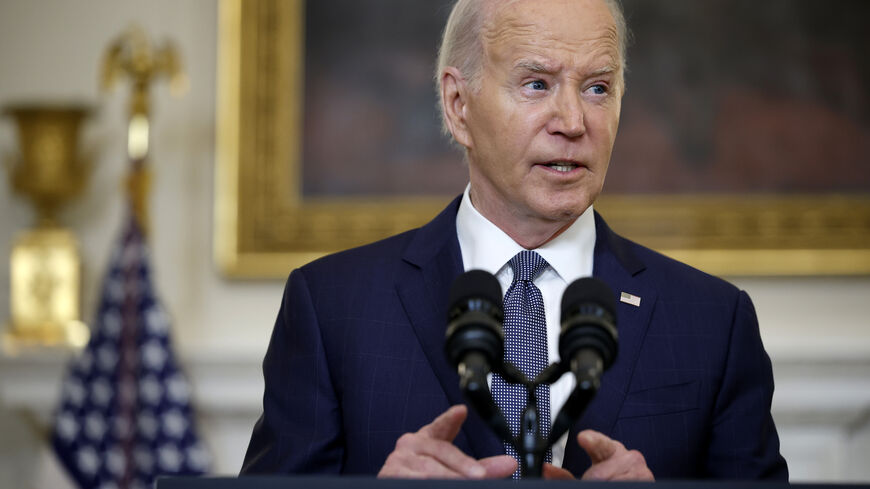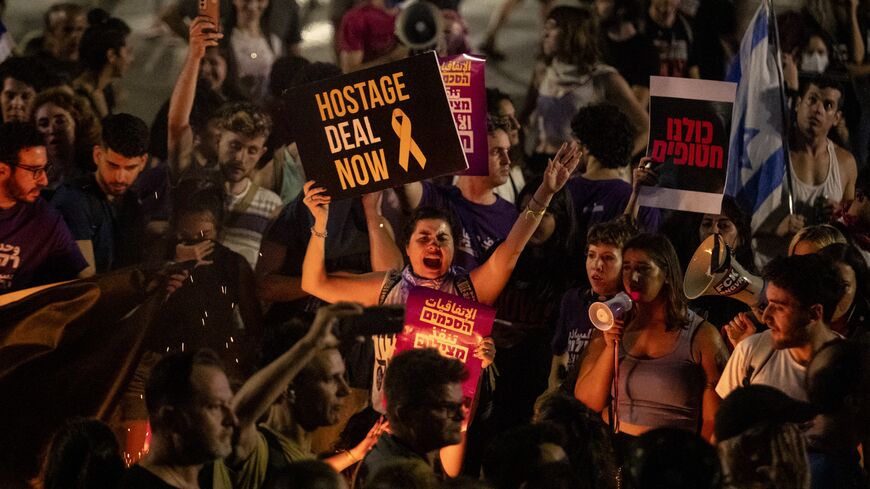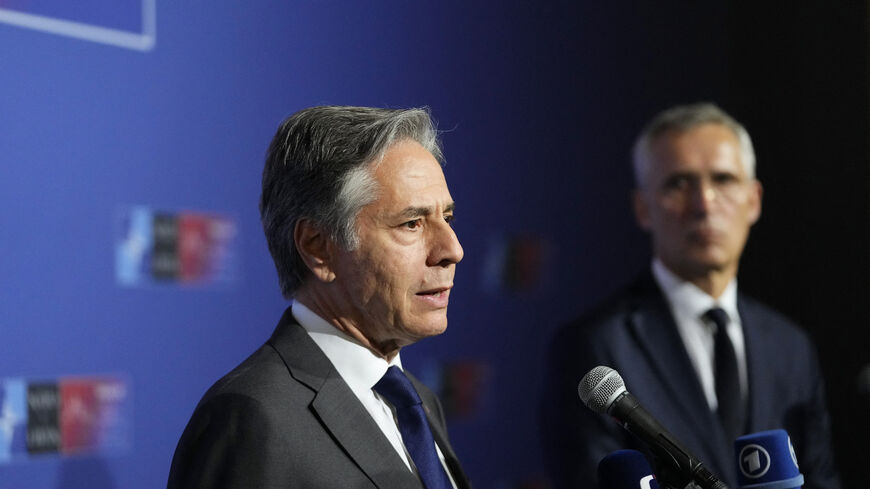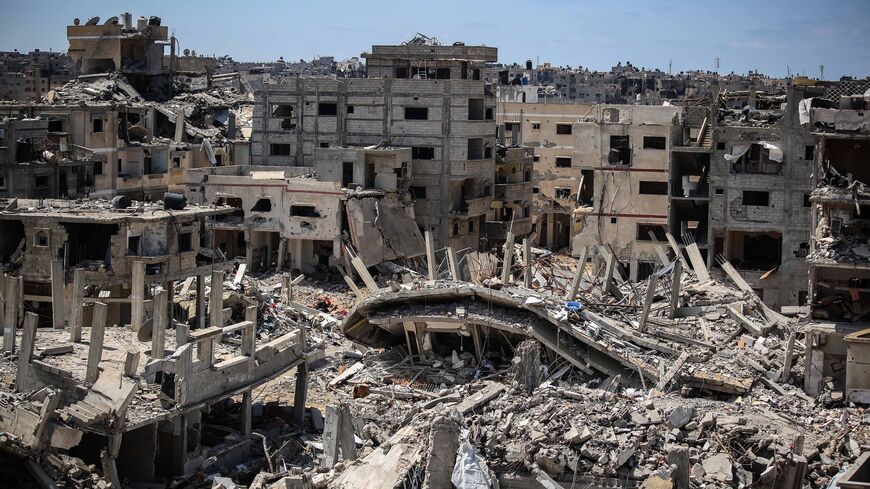As US downplays cease-fire gap with Israel, Biden urges Qatar to secure Hamas approval
The Biden administration is projecting confidence that Israeli leaders will follow through with the latest three-phase cease-fire plan, despite unresolved sticking points that burdened previous negotiations.
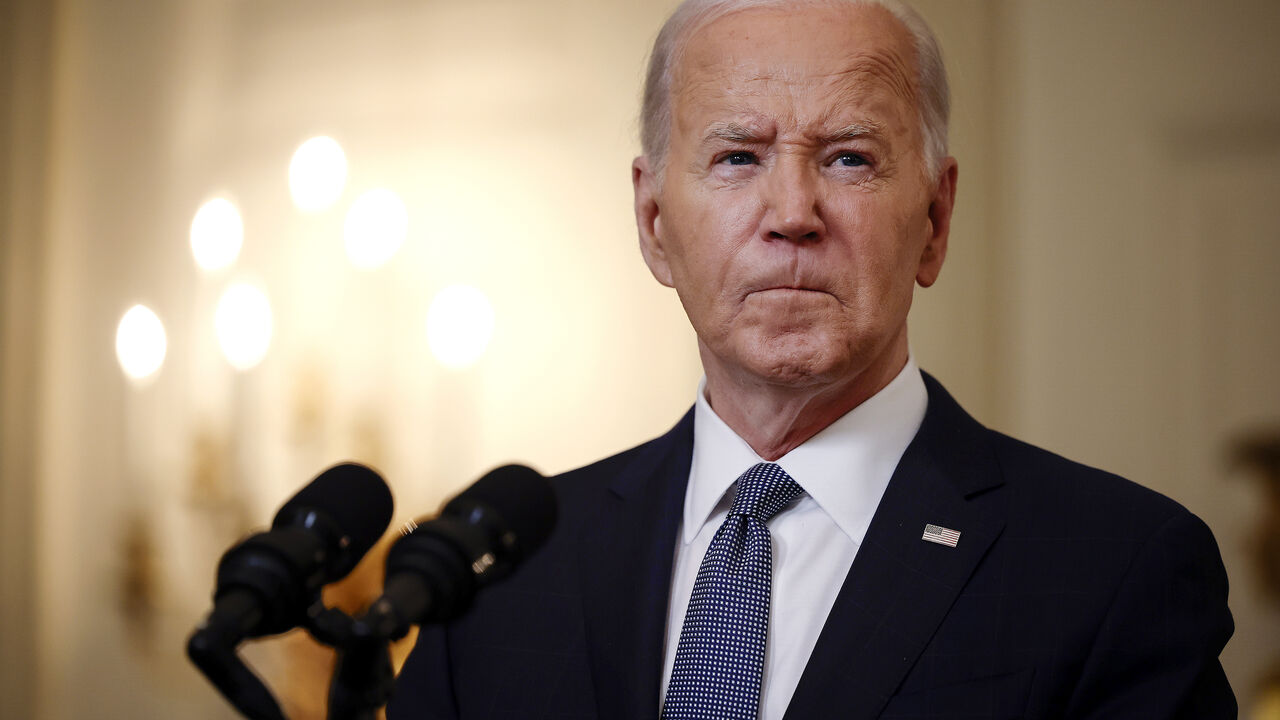
WASHINGTON — US officials insisted on Monday there is no daylight between the United States and Israel on a Gaza cease-fire proposal that the Israeli government has yet to publicly endorse.
“I know of no gaps to speak of,” National Security Council coordinator John Kirby told reporters. “We're comfortable that it represents fairly and honestly … a very forward-leaning Israeli proposal.”
In a speech from the White House on Friday, President Joe Biden announced what he described as a "comprehensive" cease-fire proposal offered by Israel, which he said was designed to bring about “the cessation of hostilities permanently” in the Gaza Strip. Qatari mediators passed the 4½-page document on to Hamas on Thursday.
Prime Minister Benjamin Netanyahu has not explicitly backed the main points in the cease-fire proposal Biden laid out, although his office said in a statement Friday evening that the phased proposal would meet Israel’s objectives, including the return of the hostages and “the neutralization of Hamas' military and governance capabilities."
On Saturday, however, the prime minister's office released another statement saying that its conditions for ending the war are unchanged.
"The notion that Israel will agree to a permanent ceasefire before these conditions are fulfilled is a non-starter,” the statement said.
A top aide of the Israeli prime minister on Sunday said Netanyahu's office has agreed to its framework, but said it was "not a good deal.” Israeli media reported that its terms were approved by the war cabinet.
The White House denied that Biden’s move was an effort to force Netanyahu’s hand after months of stalled negotiations facilitated by Qatar and Egypt.
"This wasn't about jamming the prime minister and the war cabinet," Kirby said. "This was about laying bare for the public to see how well and how faithfully and how assertively the Israelis came up with a new proposal."
Asked about the Israeli reaction, State Department spokesperson Matthew Miller said Monday that the administration is “completely confident” that Israel will go along with what is “ultimately an Israeli proposal.”
“This is a proposal that’s in the long-term security interest of Israel,” Miller said, adding that the deal would help restore calm along the northern border with Lebanon and bolster Israel’s regional integration.
The apparent differences between the United States and Israel on end-state objectives in Gaza was compounded by lingering questions as to who would govern the enclave in the wake of the proposed Israeli military withdrawal — a key sticking point not addressed by the latest cease-fire proposal.
“It does not mean just because it's not in that proposal, that we're not still working those objectives,” Kirby told reporters Monday.
Netanyahu faces domestic pressure from the families of Israeli hostages to accept the proposal outlined by Biden. On Saturday, more than 100,000 Israelis took to the streets of Tel Aviv to demonstrate in favor of the deal.
But he also is under pressure from far-right ministers with the power to bring down his government. Bezalel Smotrich, Israel's finance minister, and Itamar Ben-Gvir, the national security minister, have threatened to quit Netanyahu's fragile governing coalition if the deal moves forward before Hamas is decisively defeated.
The three-phase plan starts with the two sides observing a “full and complete cease-fire” for six weeks, Israel withdrawing its forces from populated areas of Gaza and Hamas releasing women, elderly and wounded hostages in return for hundreds of Palestinians jailed in Israel.
Biden described phase two as a “permanent end to hostilities,” with Israel fully withdrawing from Gaza and Hamas releasing all remaining living hostages, including male soldiers.
A major reconstruction plan for Gaza would begin in phase three, and the militant group would return the remains of the hostages who died in captivity.
David Makovsky, an adviser for Israeli-Palestinian negotiations during the Obama administration who is now at the Washington Institute for Near East Policy, said the “irreconcilable differences” between Israel and Hamas will make phases two and three difficult to implement.
Hamas’ demand for a full withdrawal of Israeli troops from Gaza has long been a snag in cease-fire negotiations. After Biden’s speech Friday, the militant group said in a statement it was ready “to deal positively and constructively with any proposal based on a permanent cease-fire.”
“Israel is not going to leave unless it knows Hamas cannot reconstitute itself, and Hamas is not going to go for a deal that means it can’t reconstitute itself,” Makovsky said. “And that’s the catch-22 here.”
Miller said Monday that the negotiators had yet to receive an answer from Hamas on the deal, which a senior administration official on Friday described as "nearly identical" to a previous version accepted by the group, "with some very minor adjustments."
In a phone call Monday with Qatari Emir Sheikh Tamim Bin Hamad Al Thani, Biden “confirmed Israel’s readiness to move forward with the terms that have now been offered to Hamas,” according to a White House readout. Biden urged the emir “to use all appropriate measures to secure Hamas’ acceptance of the deal."
Secretary of State Antony Blinken also pushed for the deal in separate calls with Israeli war cabinet members on Sunday, including Defense Minister Yoav Gallant and opposition politician Benny Gantz.
The latest US push for a cease-fire comes as Israeli forces move deeper into Rafah, the southernmost city in Gaza where more than 1 million Palestinians have fled since Israel began its offensive there nearly a month ago. The Palestinian death toll on Monday surpassed 36,000, according to the Health Ministry in the Hamas-run enclave.
Pentagon officials say the Israeli military's ground incursion into Rafah remains limited but that they are continuing to monitor the situation to ensure it remains in line with parameters laid out by the Biden administration. Privately, administration officials are betting that Israel’s military leadership is unwilling to incur the costs of continuing the campaign at full strength.
“Indefinite war in pursuit of an unidentified notion of total victory … will only bog down Israel in Gaza, draining [its] economic, military and human resources and furthering Israel’s isolation in the world,” Biden said in his speech on Friday.
While Biden has vowed never to cut off defensive weapons to Israel, such as US-made Iron Dome interceptor missiles, his administration has placed under review planned transfers of certain offensive weapons with a promise to freeze them if the Israeli military pursues “a major ground operation” in Rafah.
Withholding limited arms transfers alone is not likely to prevent the Israeli military's ability to launch a devastating attack on Rafah, Al-Monitor previously reported. But it could potentially limit the military’s offensive capabilities should war break out with Hezbollah in Lebanon.
The warning underscored Washington's pressure on Israeli leaders to rely less on blunt military force and more on special operations combined with US-backed diplomacy in order to achieve Israeli strategic objectives against its Iran-backed adversaries. But critics of the Biden administration’s approach have argued that any alleviation of Israeli military pressure on Hamas only reduces the group’s political will to compromise in negotiations.




